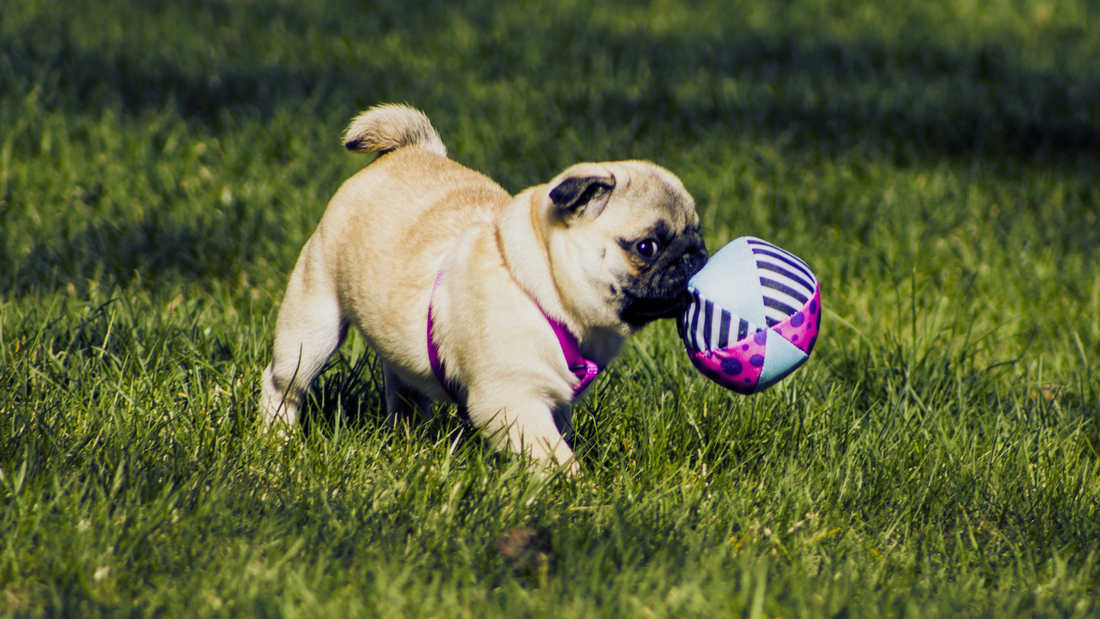
Pug Dog Breed Guide: Personality, Care, Exercise, and Fun Facts
Pugs are one of the most endearing and recognizable dog breeds, known for their wrinkly faces, curly tails, and lovable personalities. If you’re considering adopting a pug or are just curious about this charming breed, this guide will give you a detailed overview of everything you need to know about pugs, from their history and characteristics to their care needs and personality quirks.
Q: Where do pugs come from?
A: Pugs originated in ancient China over 2,000 years ago. They were bred as companion dogs for Chinese emperors and eventually made their way to Europe, where they became favorites among European royalty.
Q: What do pugs look like?
A: Pugs are small, sturdy dogs with distinctive wrinkly faces, curly tails, and expressive eyes.
Key Characteristics:
- Size: Small
- Height: 10–13 inches
- Weight: 14–18 pounds
- Coat: Short, smooth, and double-layered
- Colors: Fawn, black, apricot, and silver
Q: Do pugs shed a lot?
A: Yes, pugs are moderate to heavy shedders due to their short double coat.
How to manage shedding:
- Brush them 2–3 times a week with a de-shedding tool.
- Bathe them monthly to reduce loose hair.
- Vacuum regularly to keep your home hair-free.
Q: Are pugs good for first-time dog owners?
A: Absolutely! Pugs are affectionate, friendly, and easygoing, making them great companions for first-time pet parents.
Q: What is a pug’s personality like?
A: Pugs are playful, affectionate, and love being around their families. They have a clownish side, often entertaining with their silly antics, and they thrive on human attention.
Key traits:
- Loyal: They bond closely with their owners.
- Sociable: Pugs are friendly with kids, adults, and other pets.
- Adaptable: They adjust well to apartment living or houses with yards.

Q: What are common health issues in pugs?
A: Due to their flat faces, pugs are prone to certain health conditions:
- Brachycephalic Syndrome: Breathing difficulties caused by their short snouts.
- Obesity: Pugs love food and can easily gain weight.
- Eye Issues: Their large, prominent eyes are prone to scratches and infections.
- Hip Dysplasia and Joint Problems: Common in many small breeds.
Tips to keep them healthy:
- Avoid overfeeding and maintain a balanced diet.
- Keep them cool in hot weather, as they’re sensitive to heat.
- Schedule regular vet check-ups for early detection of issues.
Q: How active are pugs?
A: Pugs are not overly energetic but do enjoy short bursts of play and daily walks.
Activity needs:
- A 20–30 minute walk each day.
- Interactive toys to keep their minds engaged.
- Indoor playtime, especially during extreme weather.
Q: What should I feed my pug?
A: Pugs thrive on high-quality dog food tailored to their size and age.
Feeding tips:
- Portion control is key to preventing obesity.
- Limit treats and opt for healthy snacks like carrot sticks.
- Consult your vet for specific dietary recommendations.
Q: Are pugs good with children and other pets?
A: Yes, pugs are excellent family dogs! They’re gentle and patient with children and usually get along well with other animals.
Q: Are pugs easy to train?
A: Pugs are intelligent but can be stubborn. Patience, positive reinforcement, and consistency are essential for training them.
Q: Who should adopt a pug?
A: Pugs are ideal for:
- Families or individuals looking for a loyal, affectionate companion.
- Apartment dwellers, as pugs don’t require a lot of space.
- Pet parents who can provide plenty of attention and care.
Q: Who should not adopt a pug?
A: A pug might not be the best fit if:
- You’re looking for a highly active or outdoorsy dog.
- You can’t manage their shedding or potential health issues.
- You’re unable to spend ample time with them; pugs dislike being left alone.
Q: What’s a fun fact about pugs?
A: Pugs were once considered royal dogs in ancient China and were guarded by soldiers to ensure their safety.
By understanding a pug’s unique needs and personality, you can ensure they thrive as a happy, healthy member of your family. These charming little dogs bring endless joy and love to the lives of their owners!